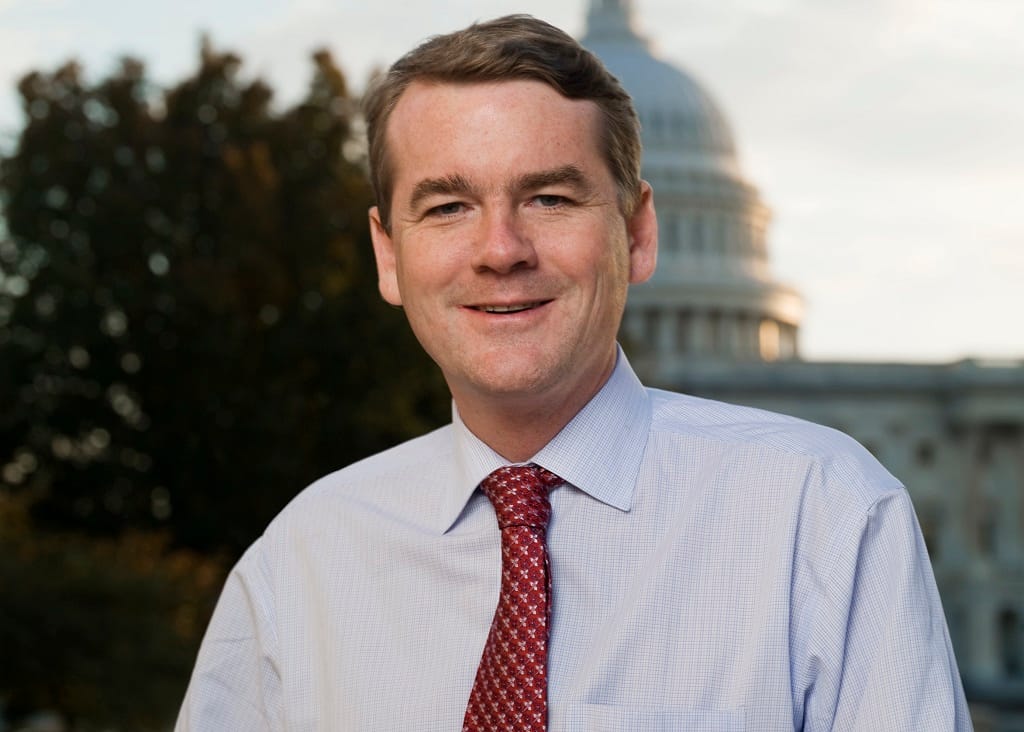Sen. Michael Bennet: Broadband Infrastructure Legislation Follows Colorado Model
Senate-passed legislation for broadband investment inspired by Colorado’s experience, says senator.
Broadband Breakfast

Washington may soon make the biggest broadband investment in U.S. history, and the first draft was written in Colorado.
Last month, the Senate passed a bipartisan infrastructure bill that includes a historic $65 billion for broadband. This section draws directly from the BRIDGE Act, the bill I wrote with Coloradans to reflect our state’s struggles and successes against the digital divide.
Long before the pandemic, broadband was a consistent source of frustration for people across our state. Parents on the Front Range, farmers on the Eastern Plains, and nurses on the Western Slope all told me the same thing: broadband was too slow or expensive to be of any practical use.
Too often, Washington’s answer was to shower the biggest telecom companies with billions in subsidies to build networks, usually in rural areas, that were outdated almost as soon as they were finished. At the same time, Washington had no good answer for working families, many in cities, who couldn’t afford existing broadband options.
As usual, Colorado didn’t wait on Washington to act. Cities created their own municipal networks, like Longmont’s NextLight, which PC Magazine named one of the fastest broadband providers in America. Electric coops like the Delta-Montrose and Yampa Valley Electric Associations deployed fiber-optic networks in rural communities at world-class speeds and prices. Through it all, the Colorado government demonstrated that it could get money out the door for broadband faster and more effectively than Washington.
With these lessons in mind, I wrote the BRIDGE Act with Republican U.S. Sen. Rob Portman from Ohio and Independent U.S. Sen. Angus King from Maine. Our bill became the model for the broadband provisions in the bipartisan infrastructure bill, which is now on the cusp of becoming law.
Based on the BRIDGE Act, the infrastructure bill gives the lion’s share of the broadband funding to states, not Washington. This is a sea change in policy, because it puts states and local leaders — not federal bureaucrats — in the driver’s seat. After all, they have the best understanding of needs on the ground and the greatest incentive to spend limited funds wisely.
Second, the bill more than quadruples the minimum speeds for new broadband networks, while prioritizing even faster networks. For a typical family, this means kids could download homework (or stream Netflix) even as parents work remotely — all without their connection slowing to a crawl.
Third, the bill includes $2 billion for broadband on tribal lands, including the Southern Ute and the Ute Mountain Ute here in Colorado. According to the FCC, one in three homes on tribal lands lack access to high-speed broadband — a significantly higher rate than the rest of the country. Closing this gap is an economic and moral imperative.
Finally, the infrastructure bill prioritizes affordability by requiring new broadband networks to provide at least one low-cost option. Inexplicably, Washington has never insisted on this before. And it can’t come soon enough.
All of these ideas came directly from the BRIDGE Act and what I’ve learned from Colorado. Now we have to pass them into law.
If we do, it would represent the biggest broadband investment in our history, but also one of the most transformative investments in our future. It will mean every worker in our mountain communities can connect remotely for their jobs. It will mean every farmer and rancher can deploy the latest technologies for precision agriculture. It will mean every family can connect with their doctors online, instead of traveling hours to the local clinic. And it will mean no student will be left without broadband, which today is no different than leaving them without textbooks.
We are on the verge of connecting every American to affordable, high-speed broadband. And if we succeed, we can take satisfaction in knowing that Colorado led the way.
Michael Bennet is U.S. Senator from Colorado. This piece was originally published in the Grand Junction (Colo.) Daily Sentinel, and is reprinted with permission.
Broadband Breakfast accepts commentary from informed observers of the broadband scene. Please send pieces to commentary@breakfast.media. The views expressed in Expert Opinion pieces do not necessarily reflect the views of Broadband Breakfast and Breakfast Media LLC.











Member discussion